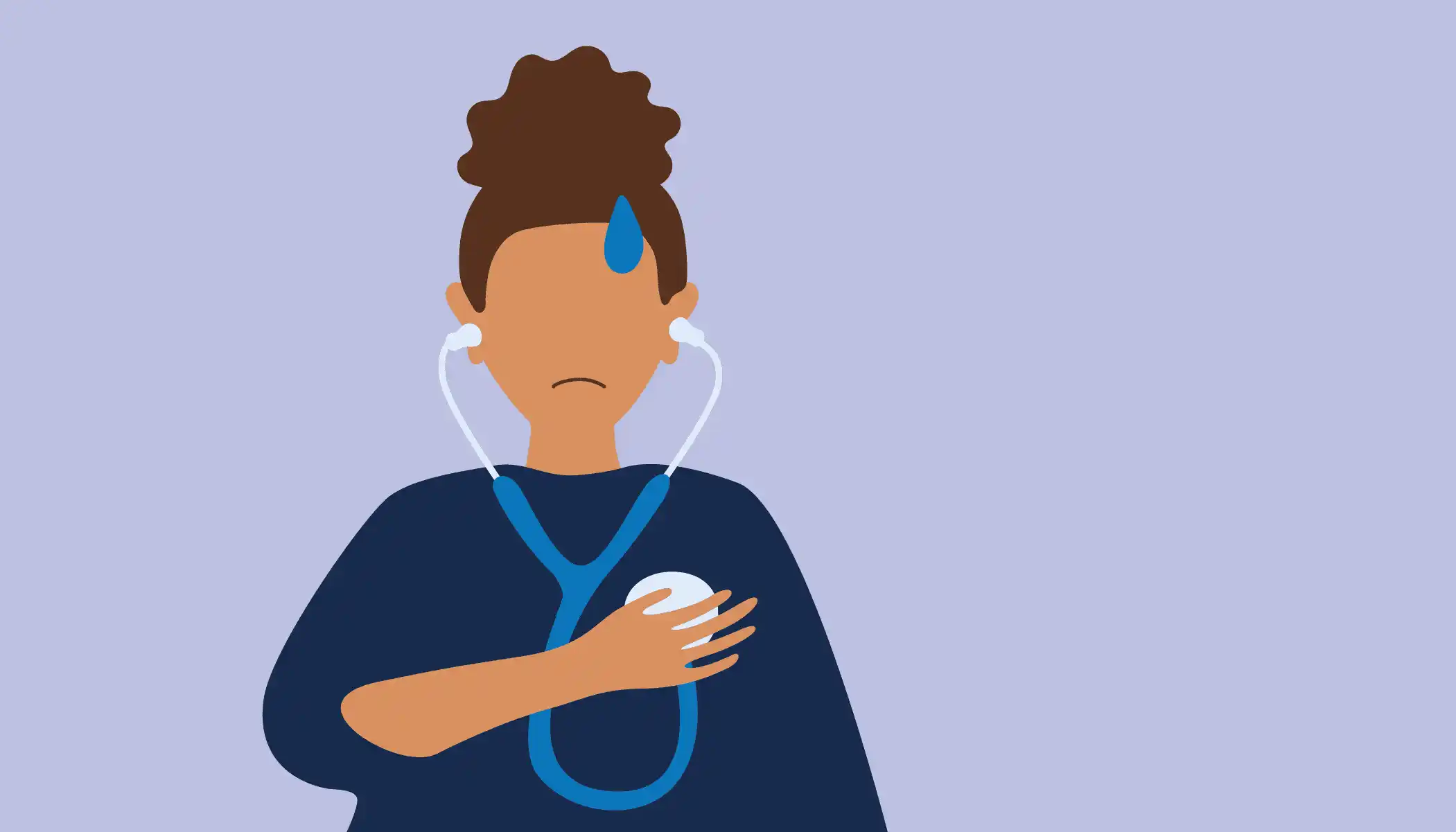Mindset Matters: Karina Hayat’s Take on Breaking Free from Health Anxiety

As we enter a new year, many of us commit to improving our health, often focusing on increasing physical activity and reducing stress. While these are noble resolutions, there’s a hidden factor that could be affecting our well-being more than we realize: health anxiety.
Recent research sheds light on an intriguing connection between how we perceive our health and our actual health outcomes. It turns out that worrying about how much exercise we are or aren’t getting, or stressing over whether we’re doing enough to stay healthy, might actually be counterproductive. In fact, it may be the worry itself—what we call health anxiety—that has the most significant impact on our health, rather than the reality of our physical activity or stress levels.
The Hidden Cost of Health Anxiety
In a study of over 60,000 adults in the United States, researchers uncovered a startling link between health anxiety and mortality. People who felt anxious about their level of physical activity, regardless of how active they actually were, were significantly more likely to experience adverse health outcomes over a span of 2 decades. The very act of worrying about exercise and its role in health led to a 71% increase in mortality risk—far more than the actual amount of activity or exercise undertaken.
This suggests a powerful truth: our mental perception of health may matter just as much—if not more—than the actions we take to improve it. The more we worry about not doing enough, the more we feed into a cycle of stress and anxiety that harms our physical health, even if we’re following public health recommendations.
Health Anxiety and Stress: A Dangerous Duo
It’s well known that stress affects our health, but the true danger lies in how we perceive it. A fascinating study conducted by Harvard University illustrated this by focusing on hotel workers. One group was told that their daily tasks, such as cleaning and moving items, were considered exercise according to health guidelines. The other group, a control group, was not given this information. After just a month, the group who believed their activities counted as exercise showed remarkable health improvements, including reduced blood pressure and weight loss.
The key difference? Belief. The informed group’s mindset about their physical activity led them to experience the health benefits of exercise, even without changing their routine.
Similarly, a major study examining stress found that those who believed stress was harmful to their health had a significantly higher risk of premature death. Those who experienced high levels of stress but did not view it as detrimental to their health had lower mortality rates than those who viewed stress as dangerous.
This pattern suggests that health anxiety—the belief that stress or lack of exercise is harmful—can be just as damaging as the stress or inactivity itself. The more we fret about our health, the more we invite negative consequences.
Releasing the Grip of Health Anxiety
If health anxiety is the problem, what’s the solution? A shift in mindset may be the most powerful tool we have. Here are some key strategies to reframe how we think about our health:
- Accept Your Current Activity Level: Instead of constantly measuring yourself against others, acknowledge and appreciate the activity you’re already doing. Whether it’s a daily walk, cleaning the house, or taking the stairs, every bit counts. Let go of comparisons with others who may seem to be more “fit.” Instead, focus on the joy of movement and the positive effects it brings to your body.
- Change Your Relationship with Stress: Rather than viewing stress as something to avoid at all costs, embrace it as a natural response to challenges. Stress is part of life, and seeing it as a tool that enhances focus and motivation rather than a harmful force can help reduce its negative impact. Studies suggest that shifting from a “stress is bad” mindset to a “stress can be helpful” perspective may lower health risks and improve outcomes.
- Stop Worrying About Being Worried: Worrying about being stressed or anxious about not being active enough may be worse than the stress or inactivity itself. Instead of obsessing over whether you’re “doing it right,” focus on the positive actions you’ve already taken. Progress, however small, is worth celebrating.
- Prioritize Self-Compassion: Remind yourself that taking care of your mental health is just as important as taking care of your physical health. Recognizing that everyone’s journey is different and embracing your own progress—without harsh self-judgment—can improve both your emotional and physical well-being.
A New Mindset for a Healthier You
The evidence is clear: your mindset plays a crucial role in shaping your health outcomes. By releasing the grip of health anxiety and reframing how you view exercise and stress, you can unlock a more balanced and fulfilling approach to well-being. Instead of fixating on perfection, embrace the progress you’re making, however small. Focus on what’s within your control, celebrate your efforts, and trust that a positive perspective can lead to meaningful improvements in both mind and body. This year, let your mindset—not your worries—lead the way to better health.
How much of your health are you letting your mindset control?
